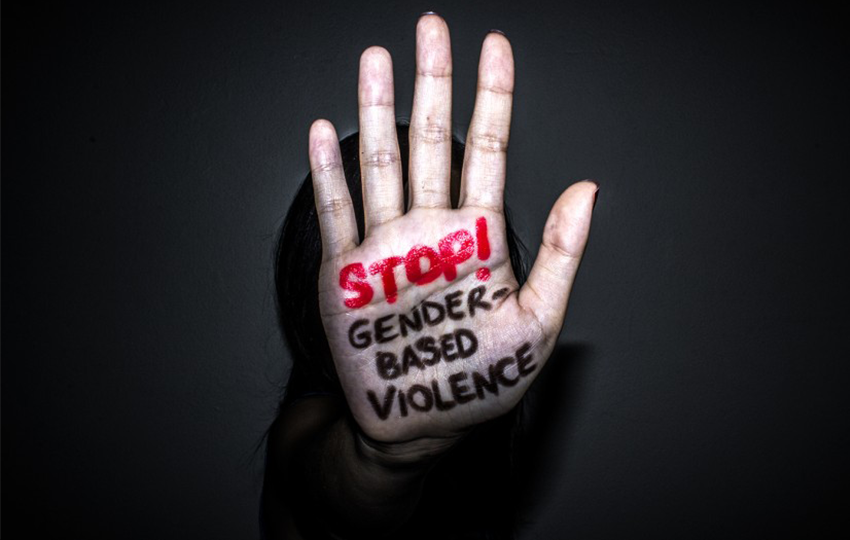One in three Nigerian women experience Gender Based Violence – Centre LSD

By Omeiza Ajayi
ABUJA: The African Centre for Leadership Strategy and Development Centre LSD has decried the declining fortunes of Nigerian women across all sectors, specifically lamenting that one on three women suffer Gender Based Violence GBV in the country.
Founding Executive Director of Centre LSD, Dr Otive Igbuzor disclosed this on Friday at the inception meeting of the Male Feminist Network MFN project – a platform to nurture a new kind of masculinity rooted in empathy, accountability and equity.
He said; “We believe that this project is very important in this time of our history because as we have indicated earlier, the statistics remain sobering. One in three women in Nigeria experiences Gender Based Violence GBV.
Harmful norms persist, often clothed in in culture or religion while survivors face silence and stigma. For too long, the responsibility for change has been placed solely on women, women organisations and women movements but we know and history affirms that true transformation requires the engagement of everyone, especially men who are willing to challenge privileges, unlearn harmful masculinities and live out feminist values”.
Igbuzor also declared support for the Special Seats Bill before the National Assembly, expressing optimism that it would be passing into law.
“We support the Special seats Bill and we are advocating for its passage. We are very hopeful that this time, it will pass. If you noticed, you would note that since return to civil rule in 1999, quota for women has always been a constitutional issue it each time there is voting, there is no sufficient vote to pass two thirds. But there has also been increasing number of votes, it is just that it has not reached two third.
“You would also observe that today the mobilization for the special seats bill is higher than the previous times. The people pushing it, including the Deputy Speaker of the House of Representatives are higher up and we believe that this time it will happen”, he stated.
Board Chairperson of Centre LSD, Kyauta Agmadalo Giwa said the Male Feminist Work project marks a collective commitment to reshaping narratives, challenging harmful norms and building a more equitable society for all.
She praised the Ford Foundation for consistently demonstrating bold leadership in promoting social justice and gender equality.
“Their investment in the Male Feminist Network is not just financial but also a powerful endorsement of the urgent need to bring men into the centre of conversations and actions around gender equality and equity.
“At Centre LSD, we have always believed in the power of strategic interventions and working with positive forces to drive transformative change. The Male Feminist Network is one such intervention and the role of the media is very critical in achieving this.
“This project is rooted in a simple but radical idea: that men must be allies, advocates, and active participants in the movement for gender justice. Feminism is not just a women’s issue it is a human issue.
“This network brings together men from diverse sectors and backgrounds who are committed to dismantling patriarchy, challenging gender stereotypes, and advancing the rights of women, girls, and gender-diverse persons.
“We aim to create safe spaces for reflection, education, and collective action. We are not here to speak over women’s voices, but to amplify them. Not to lead, but to walk alongside in solidarity”, she added.
The Male Feminist Network is designed to expand male allyship and ensuring that men are not silent bystanders in the face of violence, but active partners in dismantling the patriarchal systems that perpetuate it.
Over the next two years, through the support of the Ford Foundation, the Centre said it will work with zonal partners to train and mobilize at least 1,000 male leaders and grassroots influencers in gender advocacy and feminist principles.
It will also build a functional, inclusive and visible national network of male feminists; engage traditional, religious, and cultural leaders to adopt gender-sensitive practices; and, amplify public awareness through strategic use of traditional and digital media to challenge toxic masculinity and promote inclusive gender narratives.
“We know that Gender-based violence is one of the most persistent human rights violations in Nigeria and across the world. Statistics from the National Demographic and Health Survey NDHS and reports by the National Bureau of Statistics reveal alarming figures – over 35% of Nigerian women have experienced physical violence, and millions more face emotional, sexual, and economic abuse.
“We also know that patriarchal norms, entrenched in our cultural, social, and even legal systems, fuel these injustices. Too often, men are either direct perpetrators of violence or passive bystanders when harmful practices are carried out.
“At Centre LSD, we believe it is time for a shift. We cannot keep expecting women alone to bear the burden of this fight. Men hold influence in homes, workplaces, religious communities, politics, and traditional institutions—and when that influence is aligned with feminist values, the change is profound”, Centre LSD added.
The post One in three Nigerian women experience Gender Based Violence – Centre LSD appeared first on Vanguard News.







